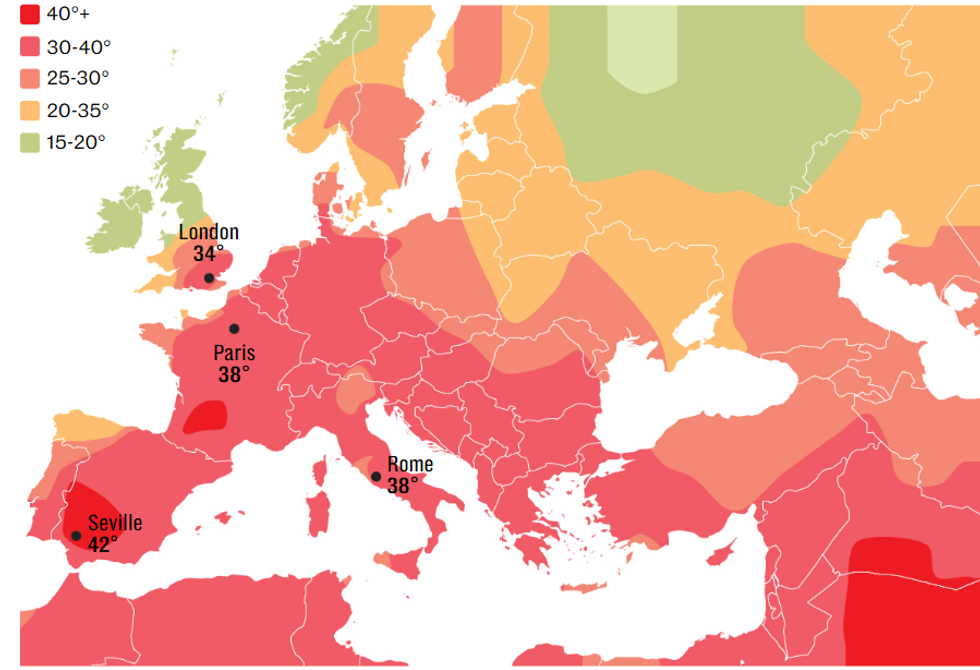by LAUREN CODLING
AN ASIAN worker has revealed the “exploitative” work environment at a Leicester-based factory, including claims that employees are underpaid and working in unacceptable conditions.
In an exclusive interview with Eastern Eye, worker Anita Patel* also alleged UK customers are being deceived with false labelling which claimed clothes were made in Britain.
She said garments were actually made in Pakistan and India, and relabelled. In addition, she highlighted a lack of safety measures being put in place during the Covid-19 pandemic.
The claims follow a number of media reports of workers being exploited in factories across Leicester, with many being paid below the minimum wage and working in an unsuitable work environment.
“For the last six months, we have been labelling clothes such as T-shirts, hoodies and jogging bottoms (with labels indicating they are) made in India or Pakistan,” Patel said. “We remove the labels of that country and put the labels of the fashion brand with ‘Made in UK’ on them.
“All staff have not been doing any other work for the last six months except this. Labelling of this type is currently underway in most of the factories throughout Leicester.”
She has also alleged that conditions were unsafe throughout the Covid-19 crisis. Although the facility closed during the first month of the lockdown, workers had to make their own face masks from materials in the factory. Social distancing was observed, she said, but only after government officials began conducting checks in June.
However, employees were required to take Covid-19 tests when a new lockdown was announced in Leicester. No workers have tested positive so far, she said. In terms of a typical working week, employees work from 8am to 5:30pm every day, with many averaging at 55 hours a week and six days a week.
However, Patel claimed she is paid for fewer hours than she actually works. Her wages are allegedly paid cash in hand and she claimed the same payslip is given each time. Pension contributions, national insurance, taxes, and other amounts are deducted, she added.
“I am paid much less than the UK government norms and even after deductions, I am given cash in hand,” she said. “I think my payslip is also messed up. Some of the staff who have young children do not mind getting cash in hand pay as they get tax credit and other benefits.”
Eastern Eye has been given photographs of the ‘Made in UK’ labels and pay slips, which corroborate Patel’s story. As well as claims of loss of pay, Patel alleged that employees do not receive pay for working bank holidays or annual leave.
Most people’s salaries allegedly range from £ 4.50 to £5 an hour. The National Minimum Wage as of April 2020 is £8.72 for workers aged 25 and over.
There is no human resources manager in the company and all issues must be directly discussed with the manager, she said. Therefore when Patel requested an increase in salary and questioned why she was not being paid minimum wage, her manager rejected her claims.
“(My boss) told me clearly that he could not afford to increase my salary,” she said. “I told him two or three times about it, but he did not believe me and finally told me, ‘if you want to go to work elsewhere you can’.”
Talking about working conditions at the factory, Patel said workers do not have access to basic necessities, including tea and coffee. They were also made to bring in toilet roll from home.
“For the past month, (our manager) has only just started putting a toilet roll in one toilet,” she said. “We have two 15-minute breaks at 10am and 3-30pm and a 30-minute lunch break in the afternoon. We do not get paid for a lunch break,” she added. “We can go to the bathroom, but the boss reprimands us if it is even a little late.”
The factory is mostly staffed by Gujaratis, and Indians from Diu and Daman, as well as other south Asian countries. Patel, who is a British citizen and of south Asian descent, is unsure how many people are working illegally.
“We are not allowed to talk to each other during work, and if we do talk, we are scolded by (our manager),” she said.
Explaining about deadlines, Patel alleged staff are forced to get jobs done within a certain time period, even if it seems “impossible”. If needed, workers work for an extra two or three more hours to get the job done, but receive no extra pay.
“(Our boss) says ‘hurry up’ to get the job done but how fast can we go?” she said. “When we are forced to do more than we can handle, we know not to let them down.”
*Name has been changed to protect identity


















 June 2025 was England’s warmest June since records began in 1884Met Office
June 2025 was England’s warmest June since records began in 1884Met Office